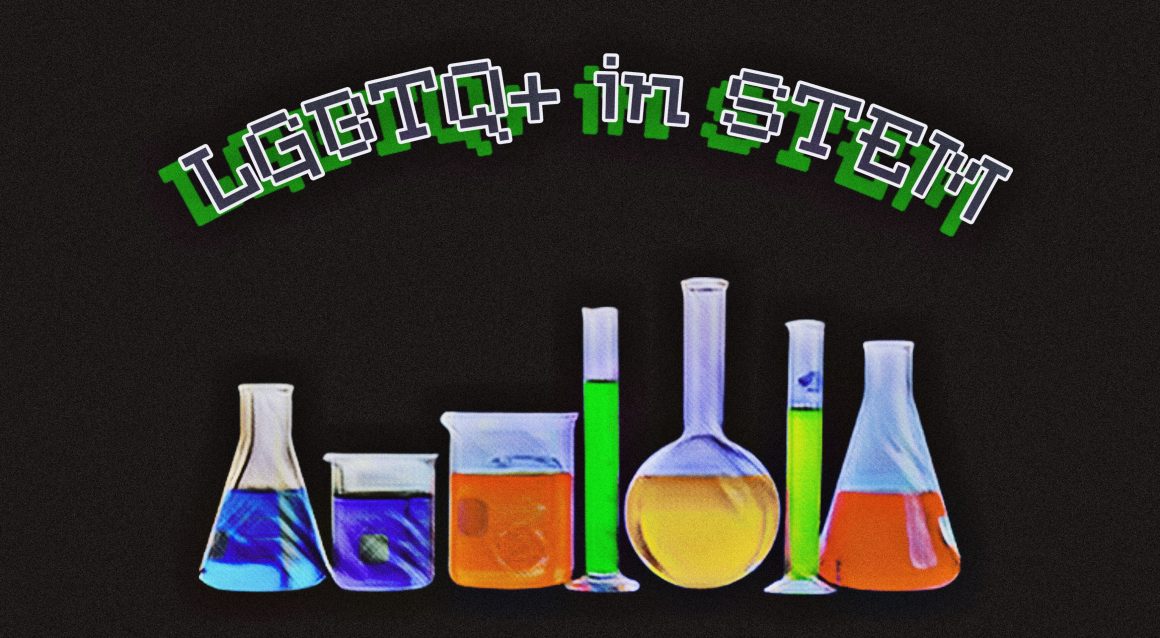
Reflecting on progress and the need for change on LGBTQ+ STEM Day
By Anjali Choudhary, December 1 2022—
At the University of Calgary, LGBTQ+ STEM Day is marked on November 18 this year to highlight the achievements and hardships of LGBTQIA+ people in the academic fields of science, technology, engineering, and mathematics. While LGBTQ+ individuals face a multitude of barriers within the broader academy because of their identity, the exclusive nature of STEM creates unique barriers and challenges. Historically, these prejudiced fields have turned revolutionary mathematicians such as Alan Turing — a pivotal code breaker who assisted in the Nazi defeat during World War II — into academic outcasts and criminals simply for being homosexual. Currently, this discrimination materializes in statistics such as almost 30 per cent of LGBTQ+ individuals considering leaving their jobs due to hostile workplaces or one in three physicists being urged to stay closeted for the sake of their career.
Hostile attitudes and discrimination continue to persist within most institutions, including at the U the C. To discuss this, following a screening of The Imitation Game — a movie based upon Turing — three U of C and LGBTQ+ community members lead a panel discussion about their experiences within academia and their desires to see change.
“I think we face different disadvantages in STEM today — in Turing’s time it was very outwards and you could not express yourself, and now, we have better opportunities to do that but you need to find the safe spaces within academia and those are so sparse,” said Austin Ashbaugh, a Ph.D. student in the department of biological sciences.
At the time that Turing was outed for being gay, he was subjected to chemical castration — the standard punishment for homosexuality in Great Britain at the time. This was shortly before Turing was driven to take his own life. Presently, we continue to see alarming statistics of LGBTQ+ adults facing twice the risk of suicide attempts than the rest of the adult population.
Ashbaugh added that they wonder whether the push for equity, diversity, inclusion and action (EDIA) is performative and whether expressing their queer identity is dangerous.
“Can I actually be vulnerable in this space and not have anything come back and hurt my career, myself as a person or my identity?” asked Ashbaugh.
“Every time you enter a new space, you have to do that calculation of how much of myself can I reveal,” said Selina Robson, a Ph.D. student in the department of biological sciences. They add that they were advised to not come out as non-binary to colleagues at a university in Nebraska by younger folks who claimed that the older academics would not understand.
These sentiments were reminiscent of the ones recalled by their fellow panellist Wayne Eberly — a seasoned professor in the department of computer science who stated that he was closeted for the first 10 years of his professorship. Although Eberly claims that the U of C has been highly supportive and evolving, he also shared that, when he came out as gay, he was immediately given a list of people to not share this information with as well as being advised to not come out to students. The similarity in warnings that Robson was given two decades later is clear evidence that there is much progress to be made in order to create truly inclusive and accepting spaces within the fields of STEM.
“It’s changed, mostly for the better,” Eberly does claim, however.
Regardless, work towards increasing inclusivity cannot stop until LGBTQ+ folks do not have to question whether it is safe for them to simply exist within an academic space. Ashbaugh said that prejudiced attitudes and actions within the university need to be addressed.
“It may be really uncomfortable, but call things out as you see them — especially as allies.”
